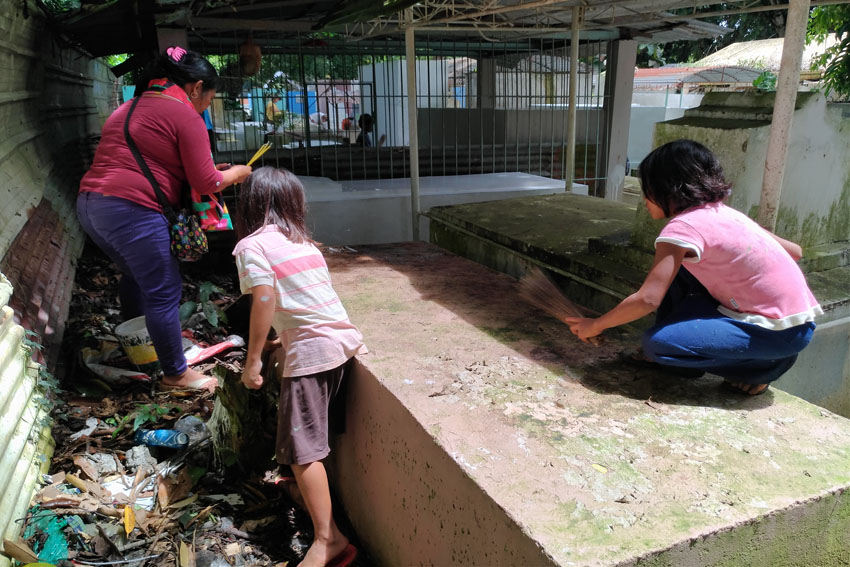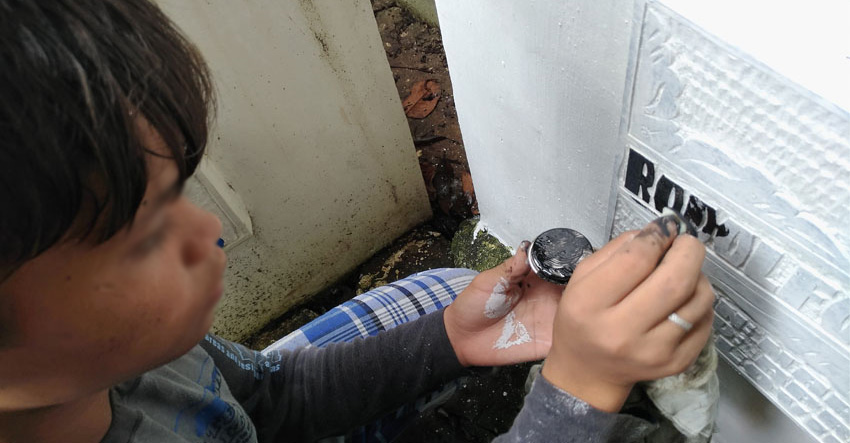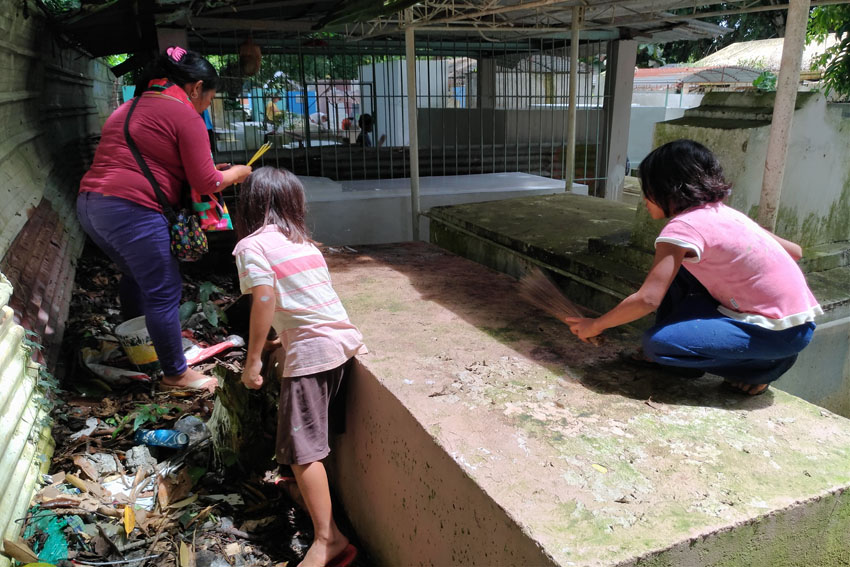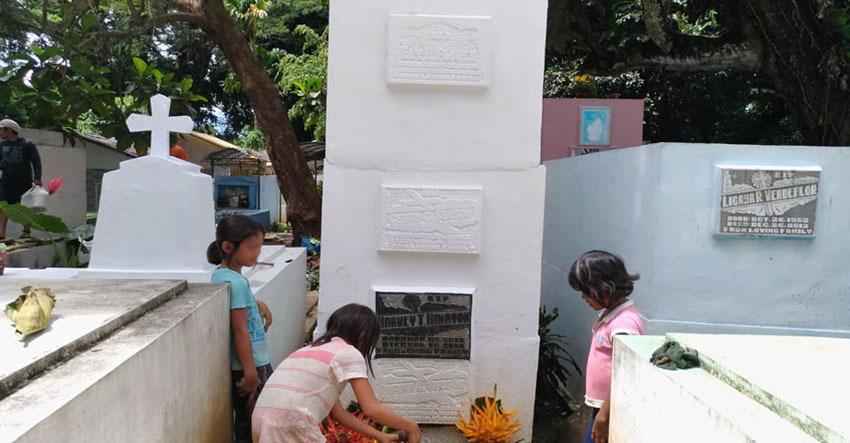
Before cleaning tombs for customers inside the Mintal Cemetery, these three girls offer prayers and lay flowers for their departed relatives. (Zea Io Ming C. Capistrano/davaotoday.com)
DAVAO CITY, Philippines – As early as 7 a.m. on the eve of All Saints’ Day, high school student Marky went to Mintal Public Cemetery looking for possible customers who would let him clean or repaint the tomb of their departed loved ones. After four hours, Marky said he earned P50.
Repainting tombs cost P30 for a kid who has his own paint to use. “If the customer provides the paint, we get P10 for the service,” Marky told Davao Today on Monday, Oct. 31.
He said sometimes customers would even haggle for a discount and the P30 rate would go down to P20.

High school student Marky, repaints a tomb inside the Mintal Public Cemetery on Monday, Oct. 31 as his pastime during semestral break. Marky gets P30 for repainting tombs.
Marky, now a junior high school student, said he started his sideline job during “Undas” when he was still in elementary. “I do this as a pastime because I have nothing to do at home, so I started going with my friends.”
His mother knows what he’s doing. But it’s not only for a past time as Marky said his earnings is shared with his family.
“I give half of my earnings to Mama, sometimes I only get a quarter of my earnings,” he said.
Like Marky, three more girls were asking people around if they would want their relatives’ tombs or graves cleaned. Sisters Hazel, 11 and Hannah 9, with their cousin Dat-dat, 9 said sweeping tombs costs P5 to P10.
The girls were at the cemetery earlier, at 6 a.m to look for potential customers. Hazel and Hannah said they also share a portion of their earnings to their mother.

Cousins Dat-dat, 9 and Hazel, 11 clean a tomb inside the Mintal Public Cemetery in Davao City a day before the traditional observance of All Saints’ Day on Nov. 1. The girls are paid P10 for sweeping. (Zea Io Ming C. Capistrano/davaotoday.com)

Hannah said they already spent a portion of their earnings to buy cooked rice and boiled eggs for breakfast. Their 14-year-old brother was also at the cemetery painting tombs. The girls said they will be working until 6 p.m.
Florie May Tacang, executive director of the Kaugmaon Center for Children’s Concerns Foundation, said cleaning in cemeteries to pass their time, like Marky, can be considered as a development of life skills.
“It’s not really a source of income for their family, so they can just stop anytime,” she said. But there are children who are doing it for a living, she said.
She said even if these “working children” are not categorized as child laborers by definition, the payment they get is small, a reason why the public hires them. “They are exposed to danger, especially now that weather changes easily, they could get sick and their earnings are not enough for medicine,” Tacang told Davao Today.
Tacang said the public should not exploit the children by hiring them. “Do not exploit the child by hiring them. Some people are saying that they pity the children and that their intention is to help, but if they want to help they can give them food instead,” she said.
Tacang said hiring children “will not help them”. (davaotoday.com)










